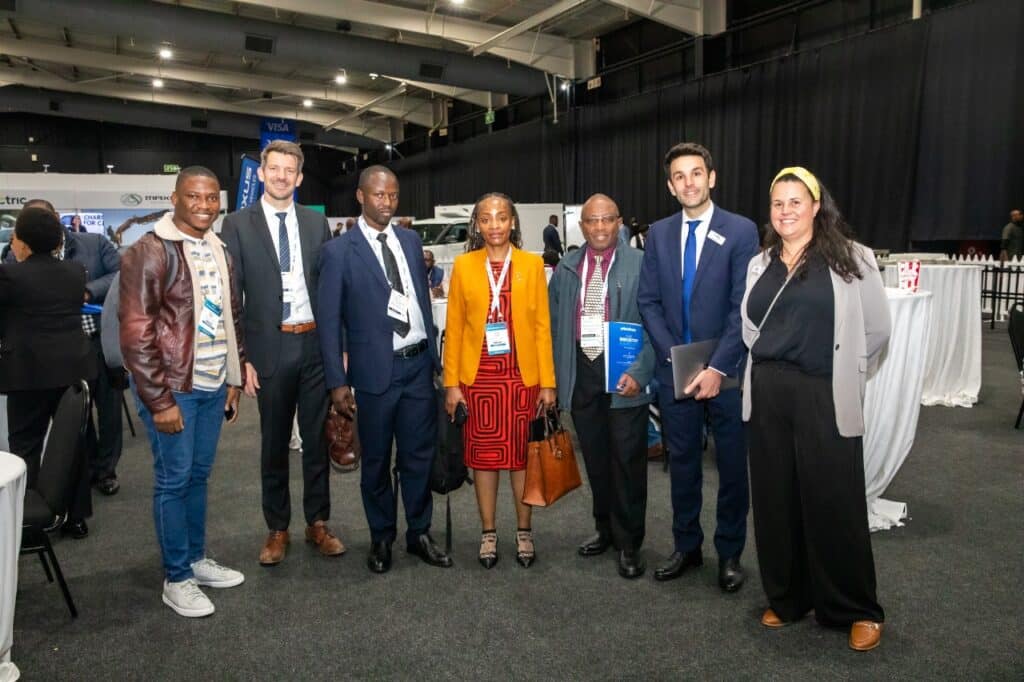
The Smarter Mobility Africa Summit, held in Johannesburg from the 2nd to 4th of October 2024, brings together key stakeholders in the transport and mobility sectors, including policymakers, industry leaders, and experts, to explore innovative solutions to Africa’s mobility challenges. The summit covered a wide range of topics, including:
The GIZ’s Promotion of E-Mobility in Kenya and Rethinking Transport Africa projects are proud to have attended and supported the participation of a delegation of Kenyan government officials as part of its ongoing capacity-building efforts. The delegation included staff members from the Ministry of Roads and Transport and the Nairobi Metropolitan Area Transport Authority (NAMATA).
Our Kenyan partners contributed to various high-level discussions during the summit, showcasing their expertise and the strides Kenya is making in sustainable mobility and transport infrastructure. The sessions highlighted the country’s focus on enhancing public transportation systems, improving urban mobility planning, and integrating safety strategies for all road users.
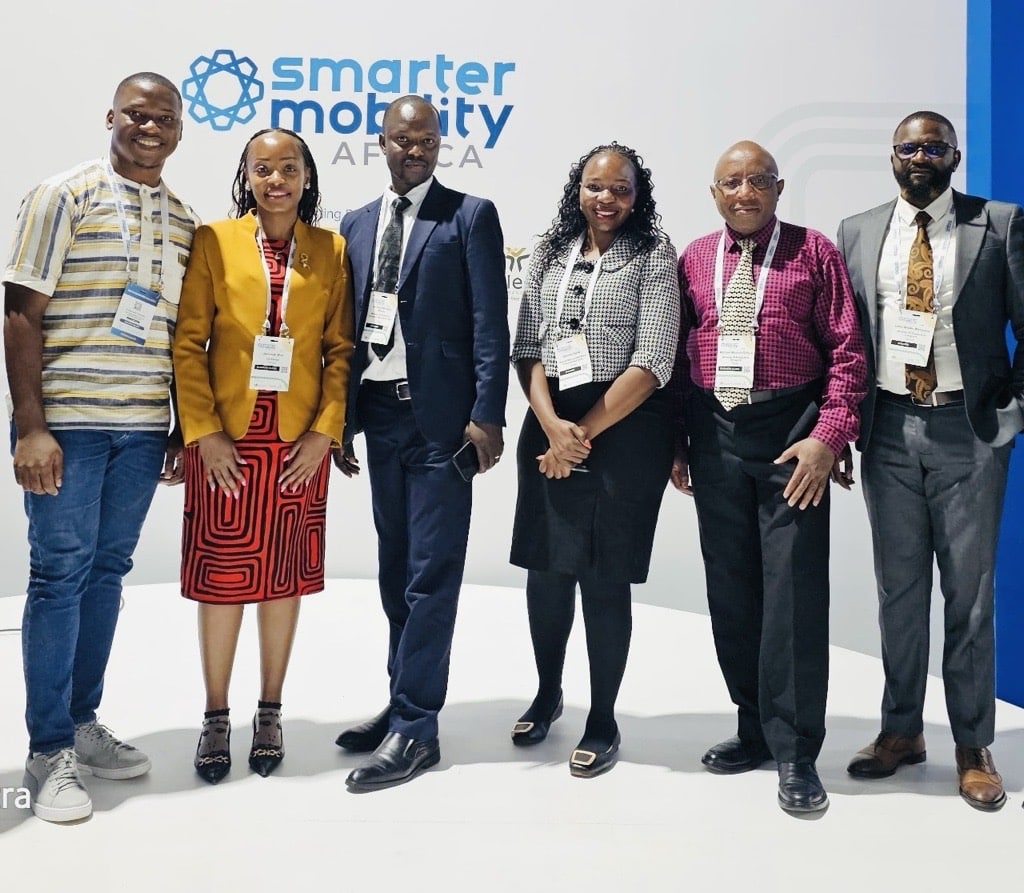

Eng. Michael Muchiri, Senior Principal Superintending Engineer, Ministry of Roads and Transport, contributed as a panelist to the session “Bridging the funding gap through Public-Private Partnerships (PPPs).” His insights emphasized on the key consideration for success and the critical role PPPs play in driving large-scale infrastructure projects and the potential for expanding these models within Kenya’s transport sector.
Mr. Geoffrey Wainaina Ndichu, Mechanical Engineer, Development, Ministry of Roads and Transport, contributed to the session “Strategies for integrating Pedestrians, Cycling & Public Transport Safety.” He shared Kenya’s experiences and strategies to ensure safety for all road users through better planning and infrastructure development. Mr. Geoffrey highlighted the recently launched Road Safety Strategy for Kenya as a strong example of how African countries can adopt effective strategies to reduce road traffic accidents. However, he emphasized that the key to success lies in moving forward with the implementation of these strategies.
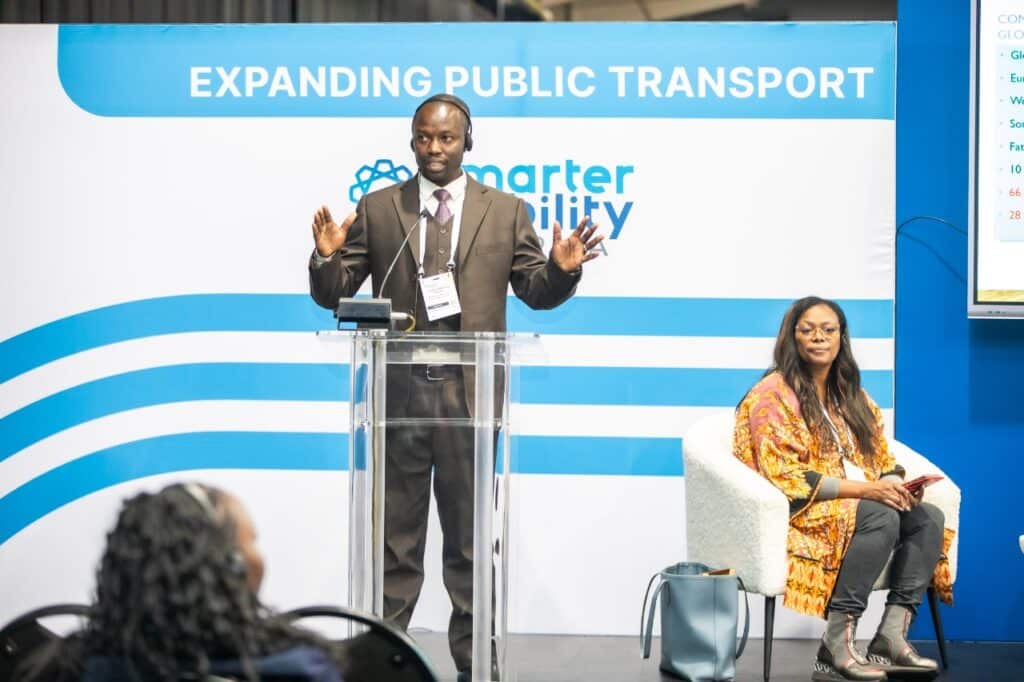
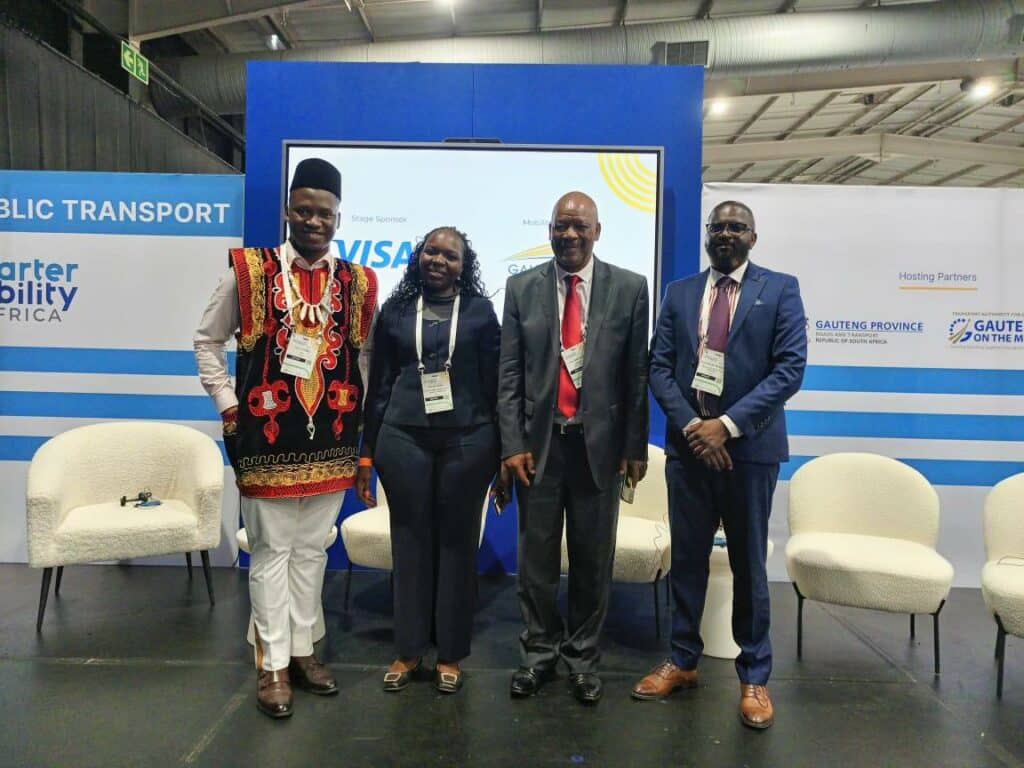
Mr. Justo Misiko Wanyama, Road Transport Officer, Ministry of Roads and Transport, shared his insights during the panel “How Can Cities Better Enable the Building of Bus Rapid Transit (BRT) Systems”. He provided practical perspectives regarding potential governments support towards implementation of BRT projects in Africa, by taking the planned BRTs in Nairobi as an example. Key lessons learned from other cities in the global south, ahead with the implementation of BRT systems were also highlighted.
Ms. Winnie Chore, Senior Officer, Network Management, NAMATA, addressed the critical issues of Network Planning for BRT in African Cities. Her contribution focused on the importance of strategic and data-driven network planning to maximize the efficiency of BRT systems in Nairobi and other African cities. She also stressed the need to consider different scenarios, including the integration of electric BRT, from the earliest stages of project planning. This approach can help avoid complex restructuring during the construction and implementation phases
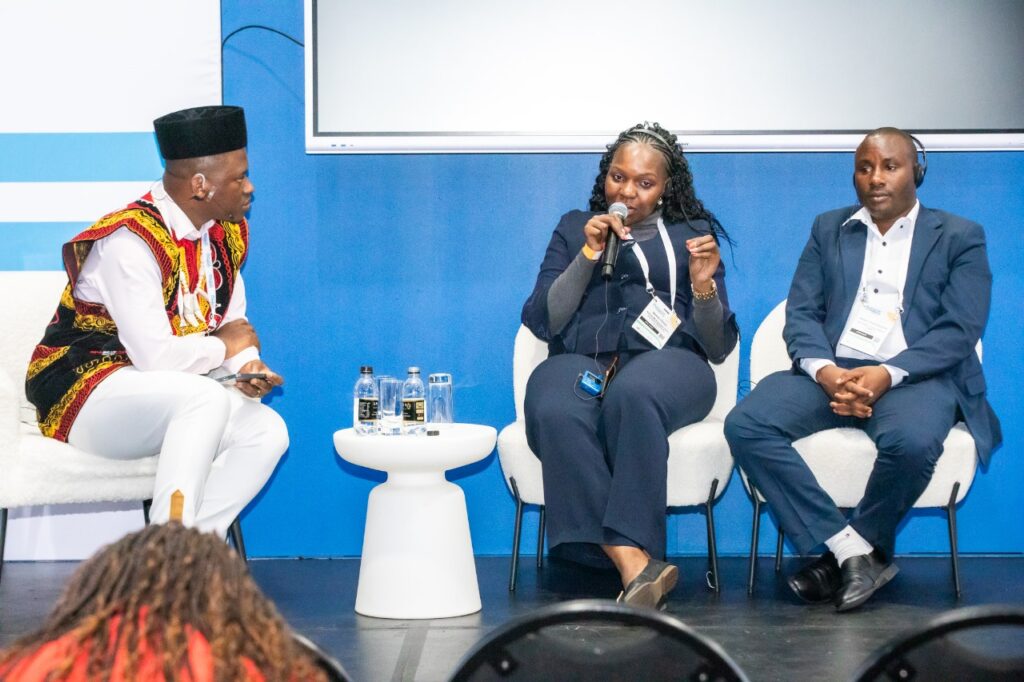
Through these sessions, representatives from Kenya showcased the country’s ambitious plans to revolutionize urban mobility through sustainable, efficient, and people-centered transport systems.
In addition, SMA offered a valuable platform for women to network and engage during the WomenIN (WiN) breakfast meeting. Naz Fredericks, the Portfolio Director of WomenIN at VUKA Group, delivered opening remarks emphasizing her dedication to equality and social justice “… we are all about empowerment, inclusivity, unwavering support for every woman, girl child and youth across all faucets of life…. let’s champion change, let’s celebrate diversity and let’s win together”
The summit was also the occasion for the delegates to participate in a site visit to the Gibela’s state-of-the-art train manufacturing plant, where they were given a comprehensive tour of the facility, which highlighted the advanced manufacturing processes, use of cutting-edge technology, and innovation in train design. The visit also showcased Gibela’s commitment to local content, job creation, and sustainability, demonstrating how the plant contributes to the local economy and skills development.
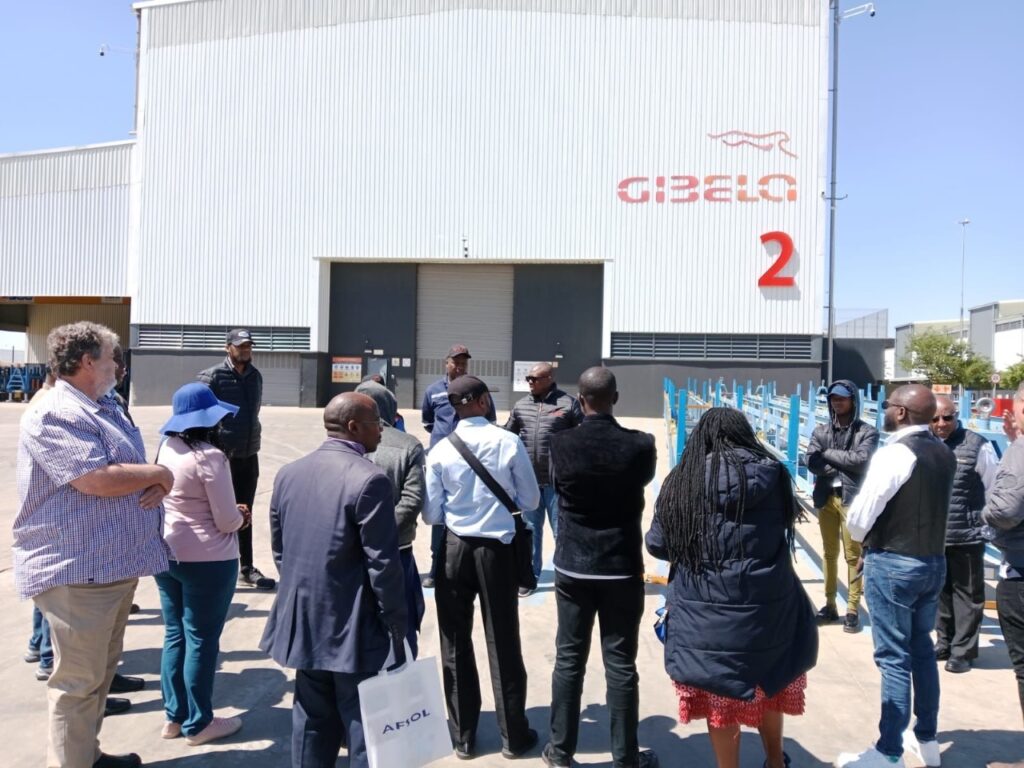
The Smarter Mobility Africa Summit served as an important platform for sharing insights, developing partnerships, and driving action to create sustainable mobility solutions for African cities. GIZ remains committed to supporting partners in advancing electric mobility and sustainable transport solutions.
The Promotion of Electric Mobility in Kenya project is implemented by GIZ and funded by the German Federal Ministry for Economic Cooperation and Development (BMZ). The Rethinking Transport in Africa project is implemented and funded by GIZ.
 CEO & Executive of Vuka Group ©Justo Wanyama
CEO & Executive of Vuka Group ©Justo Wanyama

Jemimah Muli
jemimah.muli@giz.de
Visit profile

Ulrich Tokam
ulrich.tokam@giz.de
Visit profile